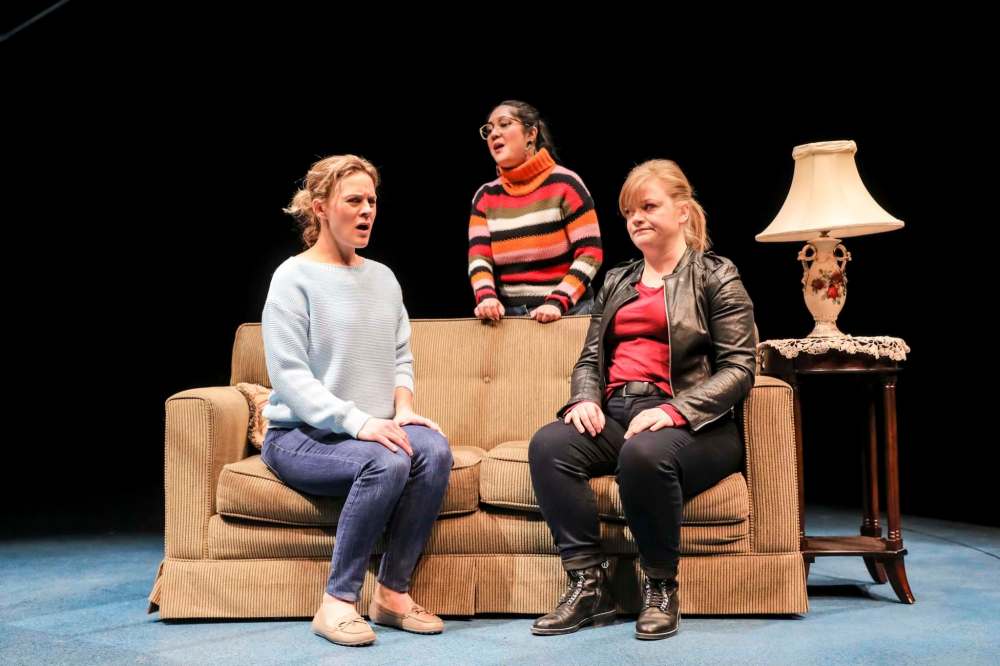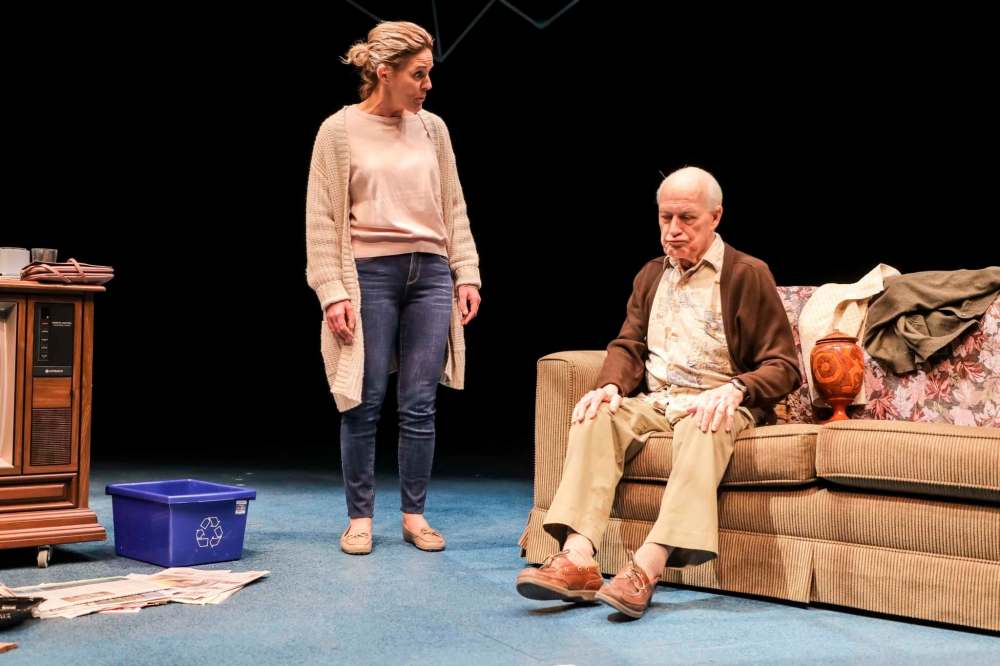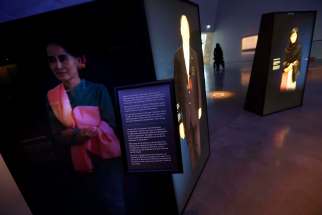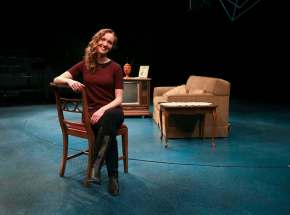Vive la différence Second foray by PTE and Cercle Molière puts French and English comedic skills to the test
Read this article for free:
or
Already have an account? Log in here »
To continue reading, please subscribe:
Monthly Digital Subscription
$0 for the first 4 weeks*
- Enjoy unlimited reading on winnipegfreepress.com
- Read the E-Edition, our digital replica newspaper
- Access News Break, our award-winning app
- Play interactive puzzles
*No charge for 4 weeks then price increases to the regular rate of $19.00 plus GST every four weeks. Offer available to new and qualified returning subscribers only. Cancel any time.
Monthly Digital Subscription
$4.75/week*
- Enjoy unlimited reading on winnipegfreepress.com
- Read the E-Edition, our digital replica newspaper
- Access News Break, our award-winning app
- Play interactive puzzles
*Billed as $19 plus GST every four weeks. Cancel any time.
To continue reading, please subscribe:
Add Free Press access to your Brandon Sun subscription for only an additional
$1 for the first 4 weeks*
*Your next subscription payment will increase by $1.00 and you will be charged $16.99 plus GST for four weeks. After four weeks, your payment will increase to $23.99 plus GST every four weeks.
Read unlimited articles for free today:
or
Already have an account? Log in here »
Hey there, time traveller!
This article was published 10/04/2019 (2435 days ago), so information in it may no longer be current.
During the 2016-17 theatre season, Prairie Theatre Exchange and Théâtre Cercle Molière embarked on an ambitious and groundbreaking partnership. The two local theatres each presented the same work — in English at PTE, en français at Cercle — with the same cast and the same director.
Theatre preview
What To Do With Albert?
Prairie Theatre Exchange
April 11-28
Tickets: pte.mb.ca or 204-942-5483
Winnipeg playwright Ginny Collins’ Churchill-set murder-mystery The Flats was the guinea pig for the joint venture. It had its world première at PTE in January 2017, and then its French debut at Cercle in March, to critical and popular acclaim.
This year, Collins, 35, finds herself on the opposite side of the process. The former French immersion student translated Quebec playwright Danielle Seguin-Tétrault’s brand-new comedy Que faire d’Albert? — which premièred at Cercle last month — into English for the PTE production, What To Do With Albert?, which opens Thursday, April 11 at 8 p.m.

“I approached it thinking ‘I’m going to write a play,’ rather than ‘I’m going to write a translation,’” she says of the process. “Because I’ve worked in both languages through school and through work, I know that it’s just so different that when you’re reimagining dialogue, you essentially have to start again. You take the intention of the text, but then you write your own words.”
What To Do With Albert? is the story of an elderly man who has been recently widowed. His daughter thinks it might be time for him to move into a seniors’ residence, but Albert has other ideas. He embarks on a journey with his late wife’s ashes to visit meaningful places from their past; he doesn’t realize his adventure is causing great panic, as no one knows where he’s gone.
Though the play, which is loosely based on Seguin-Tétrault’s own experiences, touches on serious ideas about aging and family, it’s very much a comedy — something Collins says adds a layer of difficulty to translating. It’s not just jargon and slang that need to be captured, but a particular sense of humour.
“The French language has a lot of plays on words that are very clever in that language, but in English, they might be groaners — like Dad jokes, or puns,” explains the playwright, who is the communications director for Manitoba Film & Music. “When you’re translating that and you want to show that the character is clever, that they’re making a clever turn of phrase, you have to have them make a joke, but not use wordplay.
“It starts with knowing the character… so if the character is sarcastic and a little bit mean, then you can make a joke based on that.”
Though Seguin-Tétrault formerly lived in Winnipeg, her work is strongly Québécois; Collins localized the language to be more recognizably Franco-Manitoban.
“The slang in Manitoba is quite different from Quebec,” she says. “The director was really helpful with adding the Manitoba slang — we use a lot more ‘franglais,’ a lot more English words dropped in.”

The director is Laura Lussier, 35, a graduate of University of Winnipeg’s theatre program (she and Collins attended the U of W together).
“My first words were in French but I quickly started speaking frenglish or franglais,” says the exuberant theatre artist, the daughter of a francophone mother and an anglophone father who now speaks both languages without an accent.
She started out as an English-language actor but caught the directing bug in 2008. Since then she has worked on largely French-language productions, many at Cercle Molière, as well as founding Théâtre p’tits bouts d’choux, which presents interdisciplinary works for kids between one to five.
Directing two versions of the same work — both productions were rehearsed simultaneously — was an enormous challenge, especially considering she accepted the job before Seguin-Tétrault had finished writing the play.
“Danielle and I have worked together before — I directed her first play, Et que ça saute!, in 2016 — so we’ve developed a relationship,” she says. “We spent a ton of time in the first part of rehearsal, especially because we’re working with people for whom French is a second language, to, as we say in French, ‘mettre en bouche’ or ‘put it in your mouth.’

“What’s lovely about this play and the casting is that I’m very pleased to have a big variety of accents,” she adds, pointing out the cast — Jacqueline Hogart-Glen, Alicia Johnston, Joanne Roberts, Jane Testar, Alphonse Tétrault and André Vrignon-Tessier — is a mix of francophone actors and anglophone actors with a French-immersion background.
Ironically, Albert’s humorous side again added a layer of difficulty to the work. Just as French jokes are lost in translation, French comedic acting, which tends to be broader and more exaggerated, doesn’t always work for English audiences.
“Just relearning the whole thing in a different language is a roller-coaster,” Lussier says. “But the spirit of the language is different, and so the spirit of the playing it is different. I think a lot of anglophones say francophones have a lot of joie de vivre and that translates into the way that we create art and theatre. Audiences are more used to, especially with comedies, a slightly heightened way of playing, and they are there with us.
“With the English (version), I want to keep that joie de vivre and that joy, but there are tweaks to be made. I’m really excited to see what lands and what doesn’t.”

jill.wilson@freepress.mb.ca
Twitter: @dedaumier

Jill Wilson writes about culture and the culinary arts for the Arts & Life section.
Our newsroom depends on a growing audience of readers to power our journalism. If you are not a paid reader, please consider becoming a subscriber.
Our newsroom depends on its audience of readers to power our journalism. Thank you for your support.









